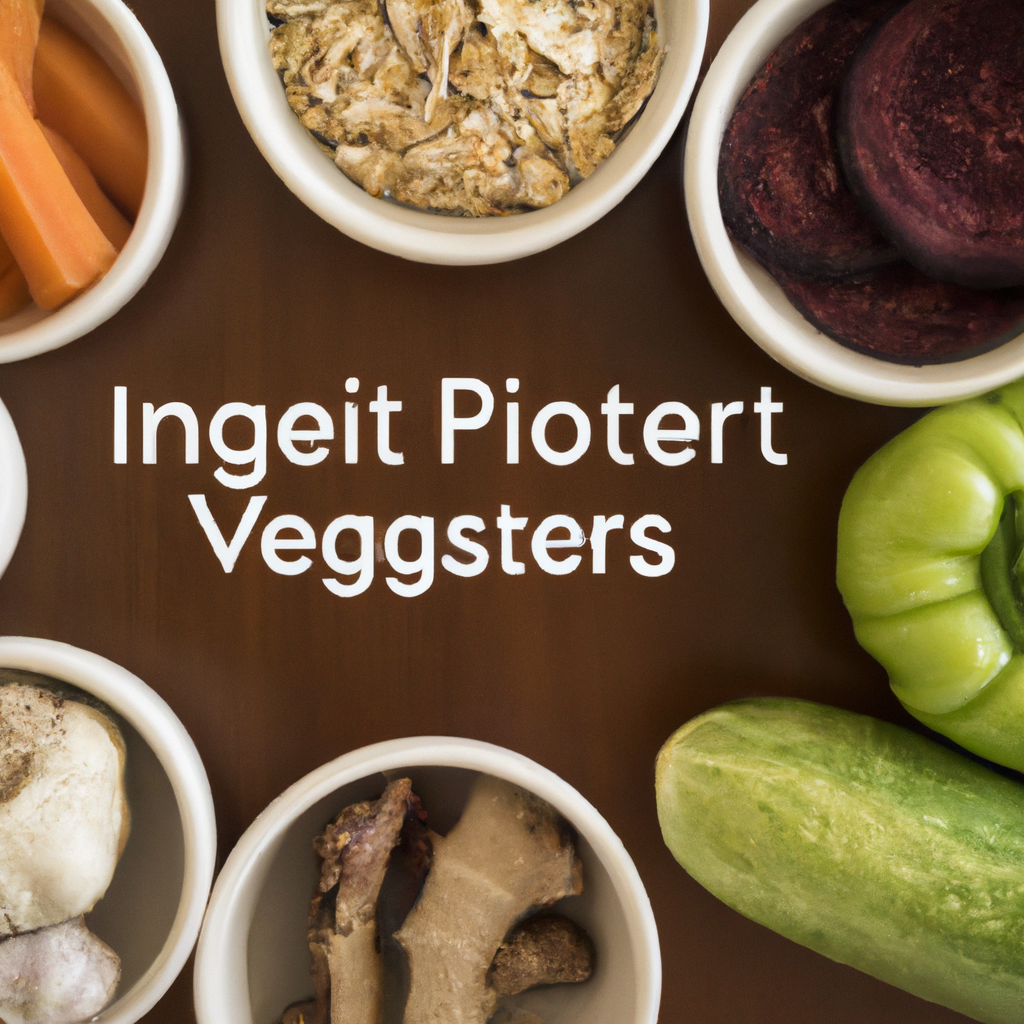Do you want to prioritize your gut health and promote a thriving digestive system? Feeding your body the right kind of foods can make a big difference in improving the overall functioning of your digestive system. Read on to discover the best gut-friendly eats that help you stay healthy and feeling your best.
1. Unlock your Digestive Potential with These Gut-Boosting Foods
Your digestive system plays a vital role in your overall wellbeing. Our gut houses the majority of our immune system and an unhealthy gut can lead to a range of negative health issues. The good news is that you can easily keep your gut health in check with the right foods.
Boost Your Digestion with These Nutrients:
- Prebiotics – foods that contain fiber, such as oatmeal, artichokes, bananas and onions.
- Probiotics – fermented foods such as yogurt, kimchi, sauerkraut, miso and tempeh.
- Polyphenols – fruits and veggies with high antioxidant content, such as spinach, kale, carrots and cranberries.
- Healthy fats – fatty fish, avocados, seeds and nuts.
- Essential vitamins and minerals – foods rich in Vitamin B, iron, zinc, Selenium and Vitamin E, such as dark leafy greens, fish, lean meats and legumes.
By stocking up on these items found in your local grocery store or farmers market, you can keep your digestive system in top shape. Eating a well-rounded diet can help ensure that your system is as efficient as it can be.
2. The Power of Nature to Heal Intestinal Discomfort
For many people struggling with uncomfortable digestive issues, natural remedies can provide a gentle and proactive approach to restoring balance and alleviating symptoms. From sweet and warming apple cider vinegar to the powerful enzymes found in sauerkraut, nature offers a wealth of sensible solutions that can be incorporated into any eating plan.
The top 3 natural remedies for easing intestinal discomfort include:
- Apple Cider Vinegar – This tangy, sour elixir is known for its anti-inflammatory and digestive soothing properties. Try stirring 1 teaspoon of organic apple cider vinegar into a cup of warm water, sipping slowly, and repeating throughout the day.
- Sauerkraut Juice or Bubbies – Juice from fermented vegetables (like cabbage) is loaded with healthy probiotics and living enzymes that help regulate the digestive system. Sauerkraut juice and Bubbies go well as a nutritional ‘shot’ or as a side condiment to meals.
- Herbal Teas & Tinctures – A variety of calming herbal teas, like fennel, chamomile, and ginger, can help reduce intestinal discomfort. Alternatively, many herbs such as mint and marshmallow root can be made into tinctures that also support healthy digestion.
These natural remedies can easily be added to your daily diet, helping to sooth and heal the internal upsets that often come along with the changing seasons. Give your digestive system a break with these simple and sustainable strategies!
3. Care for your Gut and Feel the Difference
There is no denying that good gut health is the key for overall wellbeing and a happy life. Taking care of your gut can reap a plethora of benefits, from improved digestion to improved immunity.
The easiest way to promote good gut health is by maintaining an ideal nutritional intake. Eating a diet rich in fibers, proteins, probiotics and omega-3 fatty acids can ensure a healthy gut. Foods such as kimchi, yogurt, raw garlic, legumes and oats can do wonders for the functioning of your gut. Additionally, these foods also provide important vitamins and minerals. Food is not the only way to keep your gut in check. Another great approach is to reduce the amount of added sugar and processed goods you consume.
Other than diet, exercises play an important role in keeping digestion healthy. Regular exercising can keep digestion normal and reduce any cramping and bloating. Say goodbye to stressful moments and try to bring about a sense of calmness in your daily lives. Stress can affect your digestion and compromise the healthy functioning of your gut. So, practice relaxation techniques such as deep breathing, yoga and meditation.
Improving your gut health and focusing on your digestive system can be the ultimate game-changer. Be mindful and practice these habits to promote healthy functioning of your gut:
- Include nuts, fruits and vegetables in your diet.
- Consume healthy fats such as olive oil.
- Avoid processed food.
- Maintain an active lifestyle.
- Monitor your stress levels.
- Chew your food properly.
These simple steps can help you to improve your health and prevent future illness. Your gut will thank you!
4. Nourish your Body and Feed your Gut with these Beneficial Foods
Your gut health is essential for a balanced lifestyle, and the foods you eat can make all the difference. Incorporating the following beneficial foods into your daily diet may help maintain a wholesome microbiome and promote your well-being.
- Plant-Based Products – veggie proteins, fruits, and leafy greens are all gut friendly. They come packed with fiber and minerals your microbiome needs.
- Fermented Foods – Fermented products are brimming with probiotics which help balance your gut flora. Sauerkraut, yogurt, and pickles are simple ways to add them to your diet.
- Organic Animal-Based Foods – Organic eggs, fish, and dairy provide important fats and proteins your gut will thank you for. They help restore natural gut barriers and reduce inflammation.
- Healthy Fats – Healthy oils and fats like olive, avocado, and coconut are instrumental in keeping your gut functioning properly and improving your digestion.
Integrating these foods in your daily diet may help keep your gut happy and your body nourished. Eating healthy can be delicious too, so don’t forget to treat yourself and add some variety to your gut-friendly meals!
Q&A
Q: What foods can I eat to improve my gut health?
A: Eating foods like yogurt, kimchi, kombucha, legumes, and nuts can help improve your gut health and give your digestive system a boost.
Q: Are there any other benefits to eating foods that promote a thriving digestive system?
A: Eating these types of foods can also have a positive impact on overall health and wellness, such as improved energy levels, better immune system function, and enhanced mental clarity.
Q: What should I avoid if I’m trying to improve my gut health?
A: Processed and highly refined foods should be avoided since they can lead to an imbalance in the gut microbiome. Instead, opt for whole, unprocessed foods whenever possible.
Q: Which foods are best for supporting a healthy gastrointestinal tract?
A: Foods like fermented vegetables, prebiotics, and probiotics are especially beneficial for gut health. Additionally, high-fiber foods like oats, beans, and fruits help promote a healthy digestive system.
Now that you know what food to reach for, you can make small dietary changes to promote a healthier, happier gut. Remember, living a healthier lifestyle means taking care of your digestive system, so make sure to add these foods to your grocery list and get on the path to better gut health.
Good gut health is an important part of staying healthy, yet many people don’t pay enough attention to what they’re putting into their bodies. Replacing unhealthy, processed foods with nutritious options can make a huge difference for your digestive system. Eating foods that promote a thriving digestive system is key to better overall health.
For a healthier digestive system, focus on eating a variety of vegetables, as well as healthy fats like olive oil and nut butters. These foods contain essential vitamins and minerals the body needs to function properly. Eating a balanced diet of high-fiber foods like whole grains and legumes can also help the digestive system stay regular. Whole grains are also rich in B vitamins, which can promote a better gut environment.
Including probiotic-rich foods like yogurt, kefir, and sauerkraut can also help improve gut health and promote a healthy digestive system. Probiotics are beneficial bacteria that improve digestion and help maintain a healthy balance of bacteria in the digestive tract. Eating fermented foods and taking probiotic supplements can also help maintain a healthy internal environment.
To further promote good gut health, be sure to maintain proper hydration with plenty of water throughout the day. Staying hydrated encourages regular bowel movements and helps the body digest foods efficiently. Avoid sugary drinks and alcohol, as these can disrupt transitions within the digestive system.
Finally, it’s important to strike a balance between exercise and rest. Exercise helps with digestion and helps the muscles work more efficiently, but it’s important to not overdo it. Allowing the body to rest can help the digestive system recharge.
By following these tips and focus on eating whole, unprocessed foods, you can give your gut the boost it needs to thrive. Eating a balanced diet and maintaining good habits of rest and exercise can help keep digestion in check and ensure good health.
